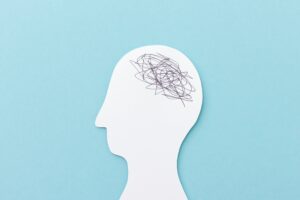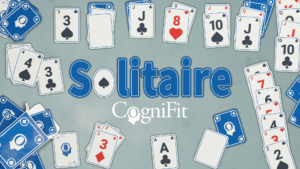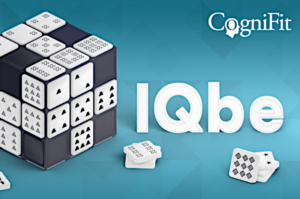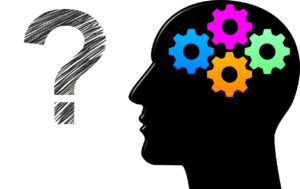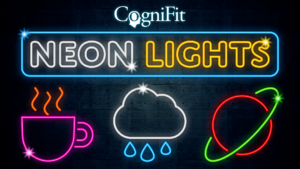
Study Reveals How Cognitive Behavioral Therapy Can Rewire Brain Circuits for Depression Relief
Stanford Medicine researchers have uncovered a new method for treating depression. Their study shows that cognitive behavioral therapy (CBT), when customized to a patient’s brain activity, can cause significant changes in brain circuits. This breakthrough could lead to better outcomes, especially for people dealing with both depression and obesity. These changes appear early in therapy—within just two months—and can predict long-term success. Problem-solving therapy, a specific type of CBT, has proven more effective than antidepressants in many cases. This offers a fresh, more accurate approach to depression treatment.

How the Study Was Conducted
The study, published in Science Translational Medicine, involved collaboration between Stanford Medicine and researchers from the University of Illinois at Chicago. It focused on 108 adults diagnosed with both major depression and obesity—two conditions that often occur together and are difficult to treat.
Participants were divided into two groups. One group received problem-solving therapy for a year along with their usual care, such as medications or regular doctor visits. The other group continued with standard care only. Participants underwent functional MRI (fMRI) brain scans at intervals of two, six, 12, and 24 months. These scans allowed researchers to track changes in the brain’s cognitive control circuits, which are crucial for regulating thoughts and behaviors.
Problem-solving therapy, a form of CBT, aims to develop skills like planning and resolving conflicts. Therapists guided patients through real-life problems, helping them brainstorm solutions and choose the best approach. The goal was to engage the brain’s cognitive control circuits and improve how patients process information.
Dr. Leanne Williams, a senior author of the study and professor at Stanford, explained the motivation behind this research. “This study shows how matching therapy to a patient’s brain activity can yield better results than the typical trial-and-error method we currently use,” she said.
Challenges in Treating Depression and Obesity
Depression paired with obesity presents unique challenges. Standard treatments like antidepressants often have limited success. Only about 17% of patients see significant relief with medication alone. Cognitive control circuits, which help regulate thoughts and emotions, are often dysfunctional in patients with both depression and obesity, making it harder to treat them effectively.
Previous research from Dr. Williams’ lab identified six “biotypes” of depression, each linked to distinct patterns of brain activity. This earlier work provided the foundation for the current study, which aimed to create a more targeted treatment for those with cognitive control circuit dysfunction.
Key Takeaways from the Study
- Early Brain Adaptations Signal Success: The study found that changes in brain activity appeared just two months after therapy began. These early adaptations predicted which patients would continue to benefit from the treatment in the long term.
- CBT Outperforms Antidepressants: The study showed that 32% of patients who received problem-solving therapy saw a reduction in depression symptoms by 50% or more. This is nearly double the success rate of those relying only on antidepressants.
- Brains Learn to Work More Efficiently: Before therapy, participants’ brains worked hard to process information. However, after two months of therapy, their cognitive control circuits became more efficient, needing fewer resources to perform the same tasks. This led to better problem-solving skills and improved emotional regulation.
- Long-Term Improvements: Patients who showed early brain changes continued to experience benefits for up to two years after completing therapy. This proves the lasting impact of problem-solving therapy.
- Addressing Cognitive Dysfunction: The therapy was especially effective at improving one of the most debilitating symptoms of depression—the feeling that “everything is an effort.” By targeting cognitive control circuits, the therapy helped patients regain control over their thoughts and emotions.
The Rise of Precision Psychiatry
This study marks a shift toward precision psychiatry, a field that personalizes mental health treatments based on individual brain activity. Just like doctors use tests to determine the best treatment for physical conditions like heart disease, precision psychiatry aims to use brain scans to match patients with the most effective therapies.
Dr. Williams explained, “In physical medicine, we use tests to understand what’s happening inside the body before deciding on a treatment plan. But in psychiatry, we often rely on trial and error. This study brings us closer to using brain scans to guide treatment decisions, saving time and helping patients recover faster.”
This approach could greatly benefit patients, reducing the time they spend cycling through ineffective treatments and helping clinicians make more informed decisions about the therapies that are likely to work best.
Implications for Mental Health Care
The findings of this study have far-reaching implications for the future of mental health care. For patients with depression and obesity, who are often resistant to traditional treatments, problem-solving therapy offers a more effective non-drug option with fewer side effects than antidepressants.
The success of this therapy in targeting cognitive control circuits suggests that other depression treatments could also be tailored to specific brain dysfunctions. This could lead to broader applications of precision psychiatry, where therapies are designed to match the neurological makeup of each patient.
The fact that brain changes occur early in therapy also offers hope for faster and more effective treatments. With further research, it may become possible to identify which patients are likely to benefit from specific therapies within just a few weeks, rather than months.
A Hopeful Outlook for Depression Treatment
Stanford’s latest research represents a breakthrough in treating depression, particularly for patients who have not responded well to traditional therapies. By showing that cognitive behavioral therapy can be customized to match brain activity, this study opens the door to more precise, effective, and lasting treatments. As mental health care continues to evolve, research like this will play a vital role in shaping a future where treatments are not only more personalized but also more successful.
The promise of precision psychiatry is undeniable. By focusing on the brain’s unique patterns, this approach could offer a faster, more reliable path to recovery for millions of people suffering from depression and other mental health disorders.












 Vote for CogniFit in the Postman Developer’s Choice Awards!
Vote for CogniFit in the Postman Developer’s Choice Awards!